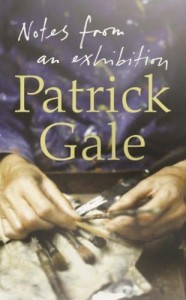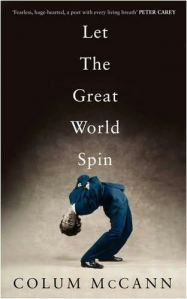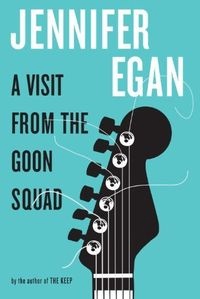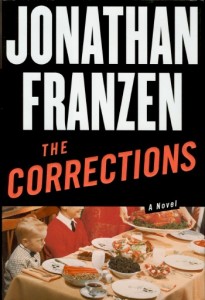I’ve read Mill on the Floss and Middlemarch and would describe myself as a George Eliot fan. However, I must admit I struggled with this one. Scenes of Early Death would be a more descriptive title. It is three longish short stories (or maybe novellas) in one novel all featuring clergymen.
Here is the plot summary from Wikipedia
The Sad Fortunes of the Reverend Amos Barton
The titular character is the new curate of the parish church of Shepperton, a village near Milby. A pious man, but “sadly unsuited to the practice of his profession”,[19] Barton attempts to ensure that his congregation remains firmly within the care of the Church of England. His stipend is inadequate, and he relies on the hard work of Milly, his wife, to help keep the family. Barton is new to the village and subscribes to unpopular religious ideas; not all of the congregation accept him, but he feels that it is especially important to imbue them with what he sees as orthodox Christian views.
Barton and Milly become acquainted with Countess Caroline Czerlaski. When the Countess’ brother, with whom she lives, gets engaged to be married to her maid, she leaves home in protest. Barton and his wife accept the Countess into their home, much to the disapproval of the congregation, who assume her to be his mistress. The Countess becomes a burden on the already stretched family, accepting their hospitality and contributing little herself. With Milly pregnant and ill, the children’s nurse convinces the Countess to leave.
Milly dies following the premature birth of her baby (who also dies) and Barton is plunged into sadness at the loss. Barton’s parishioners, who were so unsympathetic to him as their minister, support him and his family in their grief: “There were men and women standing in that churchyard who had bandied vulgar jests about their pastor, and who had lightly charged him with sin, but now, when they saw him following the coffin, pale and haggard, he was consecrated anew by his great sorrow, and they looked at him with respectful pity”. Just as Barton is beginning to come to terms with Milly’s death, he get more bad news: the vicar, Mr. Carpe, will be taking over at Shepperton church. Barton is given six-months notice to leave. He has no choice but to comply, but is disheartened, having at last won the sympathies of the parishioners. Barton believes that the request was unfair, knowing that the vicar’s brother-in-law is in search of a new parish in which to work. However, he resigns himself to the move and at length obtains a living in a distant manufacturing town.
The story concludes twenty years later with Barton at his wife’s grave with one of his daughters: Patty. In the intervening years much has changed for Barton; his children have grown up and gone their separate ways. His son Richard is particularly mentioned as having shown talent as an engineer. Patty remains with her father.
Mr. Gilfil’s Love Story
The second work in Scenes of Clerical Life is entitled “Mr. Gilfil’s Love-Story” and concerns the life of a clergyman named Maynard Gilfil. We are introduced to Mr Gilfil in his capacity as the vicar of Shepperton, ‘thirty years ago’ (presumably the late 1820s) but the central part of the story begins in June 1788 and concerns his youth, his experiences as chaplain at Cheverel Manor and his love for Caterina Sarti. Caterina, known to the family as ‘Tina’, is an Italian orphan and the ward of Sir Christopher and Lady Cheverel, who took her into their care following the death of her father. In 1788 she is companion to Lady Cheverel and a talented amateur singer.[20]
Arbury Hall, where Eliot’s father was estate manager, and the model for Cheverel Manor[21]
Gilfil’s love for Tina is not reciprocated; she is infatuated with Captain Anthony Wybrow, nephew and heir of Sir Christopher Cheverel. Sir Christopher intends Wybrow to marry a Miss Beatrice Assher, the daughter of a former sweetheart of his, and that Tina will marry Gilfil. Wybrow, aware of and compliant to his uncle’s intentions, nonetheless continues to flirt with Tina, causing her to fall deeply in love with him. This continues until Wybrow goes to Bath in order to press his suit to Miss Assher. He is then invited to the Asshers’ home, and afterwards returns to Cheverel Manor, bringing with him Miss Assher and her mother. Wybrow dies unexpectedly. Gilfil, finding a knife on Tina, fears that she has killed him, but the cause of death is in fact a pre-existing heart complaint. Tina runs away, and Gilfil and Sir Christopher fear that she has committed suicide. However, a former employee of Sir Christopher and Lady Cheverel returns to the manor to inform them that Tina has taken refuge with him and his wife. Gilfil seeks her out, helps her recover and marries her. It is hoped that marriage and motherhood, combined with Gilfil’s love for her, which she now reciprocates, will endue her with a new zest for life. However, she dies in childbirth soon afterwards,[22] leaving the curate to live out the rest of his life alone and die a lonely man.[3][20]
Janet’s Repentance
Janet’s Repentance is the only story in Scenes of Clerical Life set in the town of Milby itself. Following the appointment of Reverend Mr Tryan to the chapel of ease at Paddiford Common, Milby is deeply divided by religious strife. One party, headed by the lawyer Robert Dempster, vigorously supports the old curate, Mr Crewe; the other is equally biased in favour of the newcomer. Edgar Tryan is an evangelical, and his opponents consider him to be no better than a dissenter. Opposition is based variously in doctrinal disagreement and on a suspicion of cant and hypocrisy on the part of Mr Tryan; in Dempster’s wife, Janet, however, it stems from an affection for Mr Crewe and his wife, and the feeling that it is unkind to subject them to so much stress in their declining years. She supports her husband in a malicious campaign against Mr Tryan, despite the fact that Dempster is frequently drunkenly abusive to her, which drives her to drink in turn. One night her husband turns her out of the house; she takes refuge with a neighbour, and, remembering an encounter with Mr Tryan at the sickbed of one of his flock, where she was struck by an air of suffering and compassion about him, asks he might come to see her. He encourages her in her struggle against her dependence on alcohol and her religious conversion. Shortly afterwards Robert Dempster is thrown from his gig and seriously injured. Upon discovering what has happened, Janet, forgiving him, returns to her home and nurses him through the subsequent illness until he dies a few weeks later. Tryan continues to guide Janet toward redemption and self-sufficiency following the death of her husband. She, in turn, persuades him to move out of his inhospitable accommodation and into a house that she has inherited. It is hinted that a romantic relationship might subsequently develop between the two. His selfless devotion to his needy parishioners has taken his toll on his health, however, and he succumbs to consumption and dies young.
There is a lot of religion in this novel (I guess I shouldn’t be surprised with a title like Scenes of a Clerical life) particularly in the final story Janet’s Repentance. I think a modern secular audience would struggle with the ideology. I was surprised to read in the introduction (to the Penguin edition) that George Eliot was herself an Atheist.
There are beautiful descriptions of scenery and the characters and dialogue are spectacular. The world of Milby and its environs seems very real – the characters leap of the page (I’m sure we recognise some of our acquaintances or ourselves). There is a bit of authorial intrusion, which I found annoying and a bit patronising. For example, here is the start of Chapter Five of The Sad Fortunes of Amos Barton.
The Rev. Amos Barton, whose sad fortunes I have undertaken to relate, was, you perceive, in no respect an ideal or exceptional character; and perhaps I am doing a bold thing to bespeak your sympathy on behalf of a man who was so very far from remarkable,—a man whose virtues were not heroic, and who had no undetected crime within his breast; who had not the slightest mystery hanging about him, but was palpably and unmistakably commonplace; who was not even in love, but had had that complaint favourably many years ago. ‘An utterly uninteresting character!’ I think I hear a lady reader exclaim—Mrs. Farthingale, for example, who prefers the ideal in fiction; to whom tragedy means ermine tippets, adultery, and murder; and comedy, the adventures of some personage who is quite a ‘character’.
But, my dear madam, it is so very large a majority of your fellow-countrymen that are of this insignificant stamp. At least eighty out of a hundred of your adult male fellow-Britons returned in the last census are neither extraordinarily silly, nor extraordinarily wicked, nor extraordinarily wise; their eyes are neither deep and liquid with sentiment, nor sparkling with suppressed witticisms; they have probably had no hairbreadth escapes or thrilling adventures; their brains are certainly not pregnant with genius, and their passions have not manifested themselves at all after the fashion of a volcano. They are simply men of complexions more or less muddy, whose conversation is more or less bald and disjointed. Yet these commonplace people—many of them—bear a conscience, and have felt the sublime prompting to do the painful right; they have their unspoken sorrows, and their sacred joys; their hearts have perhaps gone out towards their first-born, and they have mourned over the irreclaimable dead. Nay, is there not a pathos in their very insignificance—in our comparison of their dim and narrow existence with the glorious possibilities of that human nature which they share?
Depend upon it, you would gain unspeakably if you would learn with me to see some of the poetry and the pathos, the tragedy and the comedy, lying in the experience of a human soul that looks out through dull grey eyes, and that speaks in a voice of quite ordinary tones. In that case, I should have no fear of your not caring to know what farther befell the Rev. Amos Barton, or of your thinking the homely details I have to tell at all beneath your attention. As it is, you can, if you please, decline to pursue my story farther; and you will easily find reading more to your taste, since I learn from the newspapers that many remarkable novels, full of striking situations, thrilling incidents, and eloquent writing, have appeared only within the last season.
However, I can see a progression from these stories (her first) to Middlemarch.
More reviews …
http://www.theatlantic.com/past/docs/unbound/classrev/clerical.htm
http://tonysreadinglist.blogspot.com.au/2009/08/61-scenes-from-clerical-life-by-george.html
Here is a letter Dickens wrote to Eliot on reading Scenes of a Clerical Life
http://theamericanreader.com/18-january-1858-charles-dickens-to-george-eliot/










